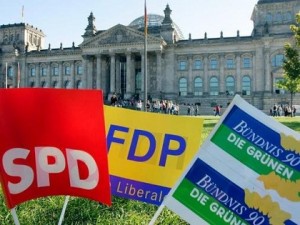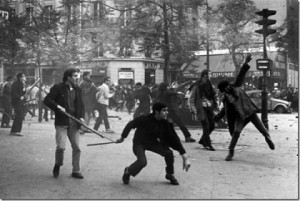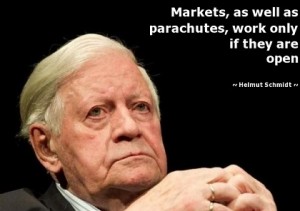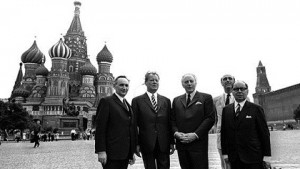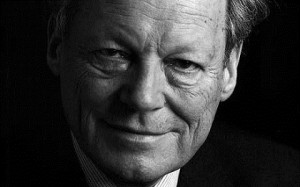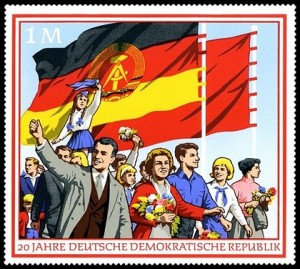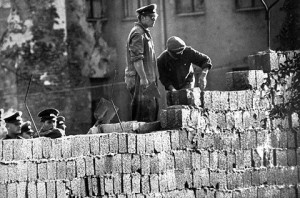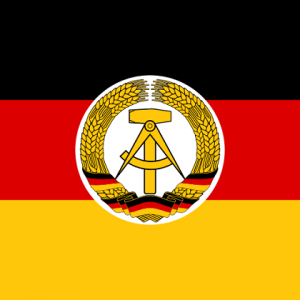The SPD-FDP coalition formed in 1969 became increasingly strained in the early 1980s, leading to concerns among the FDP leadership about its stability. The SPD had become deeply divided because many of its members found Chancellor Schmidt's policies too conservative. Particularly troublesome was his position on NATO's Dual-Track Decision, which … [Read more...]
The Greens in Germany
In the aftermath of the oil crisis of 1973, regional political groups concerned with environmental issues began to put up candidates in communal and regional elections. In 1980 a number of ecological groups, alternative action movements, and various women's rights organizations banded together on the national level to form the political party that … [Read more...]
The Student Movement and Terrorism in Germany
In addition to troubling economic and environmental problems for which no easy solutions were available, West Germany and its politicians had to contend with two new sources of social unrest: the student movement of the late 1960s and early 1970s, and left-wing terrorism, which originated in the late 1960s, but which had its greatest impact in the … [Read more...]
Helmut Schmidt
Following Brandt's resignation in May 1974, the SPD-FDP coalition partners unanimously agreed that Minister of Finance Helmut Schmidt should head the new government. At fifty-five, Helmut Schmidt became the youngest chancellor of the FRG. Born in Hamburg in 1918, he served as an officer in World War II. After the war, he joined the SPD and served … [Read more...]
Ostpolitik in Germany
West Germany's relations with the East European states had virtually stagnated since the establishment of the Hallstein Doctrine in the mid-1950s. In 1970, in an attempt to lessen tensions in Europe, Brandt and his FDP minister for foreign affairs, Walter Scheel, agreed to negotiate with the communist bloc. For the first time since 1948, the top … [Read more...]
The Social Democratic-Free Democratic Coalition, 1969-82 and Willy Brandt
In the West German Bundestag elections of September 1969, the CDU/CSU remained the largest political group, holding eighteen more seats than the SPD. With the help of the FDP, which had earlier supported the candidacy of the SPD minister of justice Gustav Heinemann for the federal presidency, Willy Brandt was able to form an SPD-FDP coalition … [Read more...]
The “Socialist State of the German Nation”
The building of the Wall effectively halted large-scale emigration from the GDR. Although the SED failed to gain the active support of the majority of the population, young people, especially, began to tolerate the regime, at least passively. In the absence of any alternatives, they fulfilled their routine duties in youth organizations, schools, … [Read more...]
The Berlin Wall
Besides its increasing economic difficulties, by the end of the 1950s the GDR encountered another problem that began to threaten its existence: large numbers of people were leaving East Germany for the West. Nearly half of those who fled the GDR were under twenty-five years of age. Although crossing the border between the two German states had … [Read more...]
The Warsaw Pact and the National People’s Army
The Soviet Union and seven of its European satellites sign a treaty establishing the Warsaw Pact, a mutual defense organization that put the Soviets in command of the armed forces of the member states. The Warsaw Pact, so named because the treaty was signed in Warsaw, included the Soviet Union, Albania, Poland, Romania, Hungary, East Germany, … [Read more...]
Planned Economy in GDR
In the GDR, as in the other new "people's republics," the authorities' goal of abolishing private property and every trace of capitalism was to be implemented in several steps. By taking possession of all resources, as well as of the means of production and distribution, the socialist state hoped to be able to compete successfully with the … [Read more...]
- « Previous Page
- 1
- 2
- 3
- 4
- 5
- 6
- …
- 13
- Next Page »
